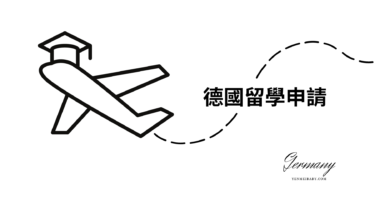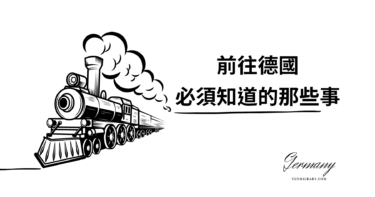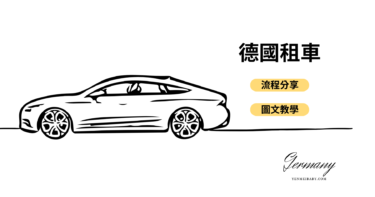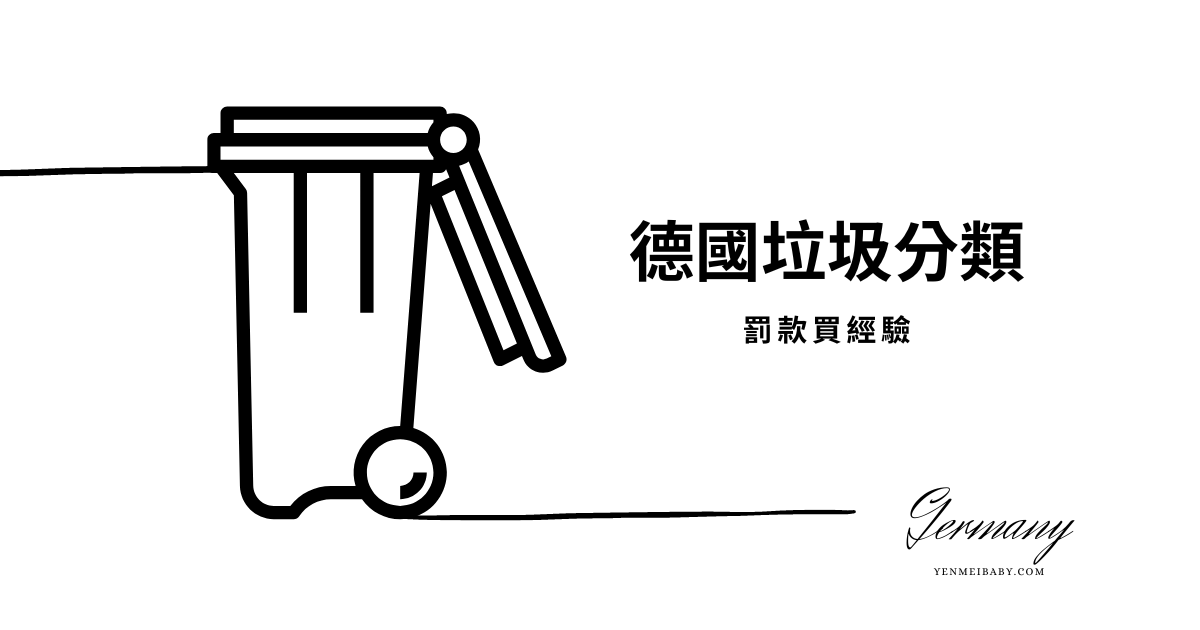
【Germany】You can be fined for littering – How do you sort your trash?
When I first arrived in Germany, I noticed that every household had garbage collection bins or containers located in their backyard. It was very convenient because there was no need to chase after garbage trucks, and disposing of garbage was easy. However, I didn’t know how to sort or dispose of the garbage correctly.
Initially, I was living in a student dormitory, and there was no need to sort or recycle the garbage. However, when I started renting my own apartment, I realized that Germany has a very elaborate system for sorting waste, and recycling is taken very seriously.
快速轉跳目錄
Garbage Categories and Disposal
In Germany, every household has their own garbage collection bin or container. For those living in standalone houses, it may be several small bins, whereas those living in apartments may have a fixed garbage collection area. These collection areas are locked, and only residents have the key to open the bin and dispose of their trash. Inside the collection area, there are several colored lids for garbage collection trucks, which are used to distinguish between different types of waste. Generally, there will be signs indicating which bin is for which type of waste. If there are no signs, the black lid is for general waste (Abfall), the yellow lid is for recycling (Verpackungsmüll), the blue lid is for paper (Papier), the green lid is for organic waste (Bio, typically for food waste, and the bin is usually smaller), and glass bottles and jars (Glas) are separated by color (brown/Brau, green/Grün, clear/Weiß). Labels should be removed before putting glass in the recycling bin, and batteries or light bulbs can be taken to drugstores (DM, Rossmann) for recycling. Old clothes can be dropped off at clothing recycling bins, which are often located near supermarkets (although not every supermarket has one).
Compared to Taiwan, Germany’s waste classification system is much simpler. Typically, household waste is only separated into general waste, recyclables, paper, and organic waste. There is no need to sort soft and hard plastics or plastic bags separately. Large items, such as furniture, can be collected by scheduling a pick-up with the cleaning team. In Germany, there is no need to chase after garbage trucks. As long as you put your garbage out at the designated time or dispose of it in the community garbage collection area, the cleaning team will take care of it for you. However, this is not a free service, and the cost is included in the additional expenses (Nebenkosten) of your rent. Having centralized garbage collection in the backyard is very convenient, but one downside is that flies can be a problem during the summer. If your house is not clean enough, the flies may keep coming in, which can be quite scary.
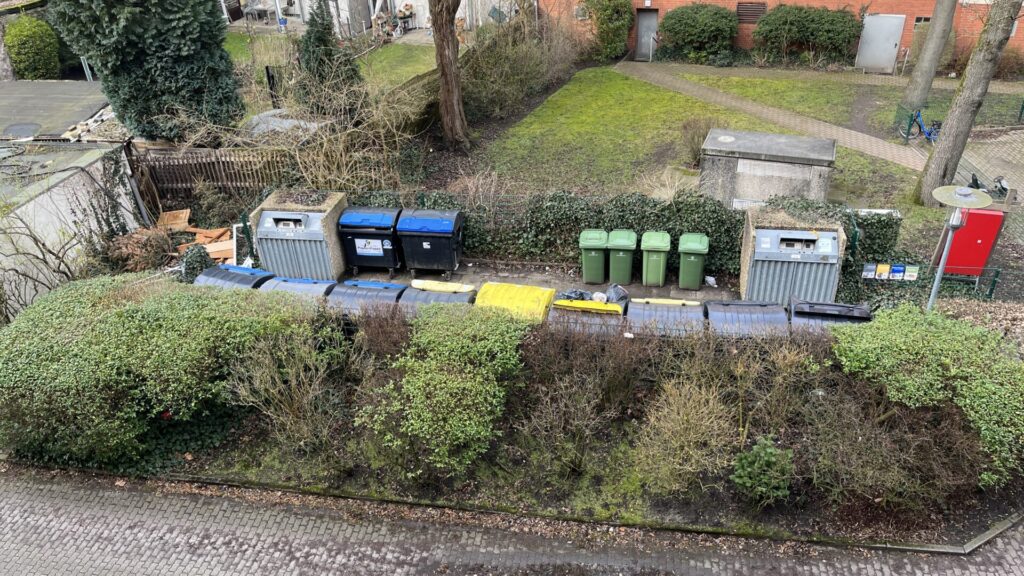
Being fined for littering.
Moreover, littering (dropping trash on the ground) in Germany is actually punishable by law and can result in a fine. I didn’t know about this until I had to learn the hard way when the trash bin in my neighborhood was full. Some neighborhoods may not have recycling bins for paper, so you have to go find the recycling bin on the street. The paper recycling bin is often located next to the glass recycling bin on the street. One time, when the paper recycling bin on the street was full, and I had a few large furniture boxes with my address on them to throw away, I followed what others did and threw the boxes on the side of the road. Unfortunately, a few weeks later, I received a fine for littering. I then realized that even if the trash bin was full, I couldn’t throw trash on the ground like others did, and I also needed to remove my address and name before throwing the boxes away.
“Deposit fee” assists in recycling
Germany has a way of promoting recycling through the deposit fee system. Generally, there is a deposit fee for beverage bottles or wine bottles in supermarkets. Plastic beverage cans are usually 0.25 euros, while glass bottles and aluminum cans may vary, usually around 0.08 euros. If you buy a basket of wine, the basket also has a deposit. Most supermarkets have recycling machines, where you can throw the empty bottles into the machine, which then crushes the bottles and gives you a refund voucher for the deposit fee. However, it should be noted that not all recyclable bottles have a deposit fee, and the criteria for determining whether there is a deposit fee is usually whether there is any residual content left in the bottle or whether there is a label on it. Most juice bottles do not have a deposit fee, while most tea, water, and carbonated beverage bottles do. Some refund vouchers can only be used in the supermarket where you received the refund, and some have an expiration date, so it’s safer to use the refund voucher in the same store where you received it. Otherwise, you might end up wasting it if you can’t use it in another store.
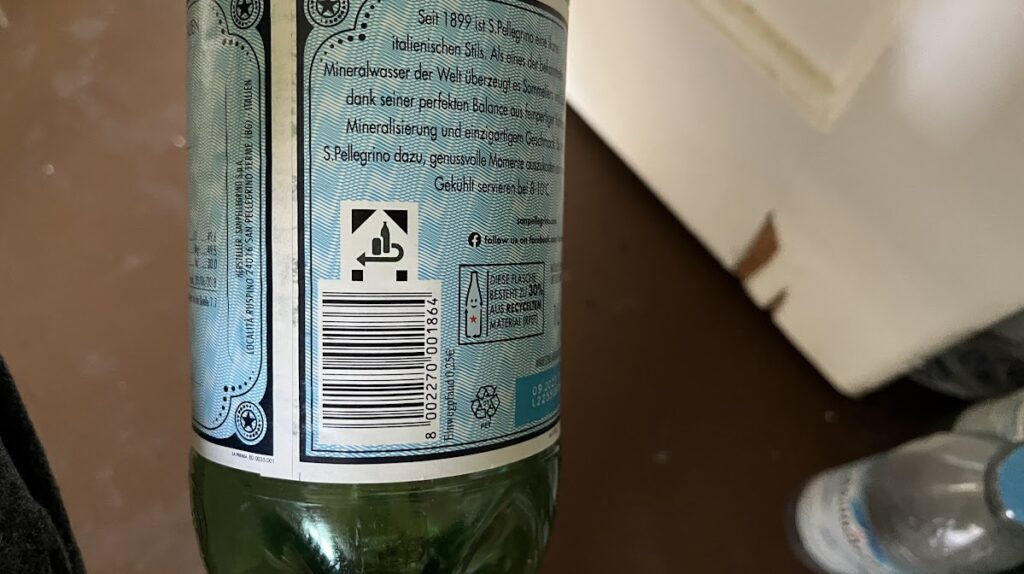
Cool facts about where garbage goes
A fun fact to share is that sometimes waste sorting in Germany may not seem to have much meaning, as some regions simply take all the waste and use it for incineration to generate electricity. In this way, all the sorted waste will end up being burned together. However, not all regions handle waste in this way, so it is still important to sort waste properly to enable resources to be reused for a better environment.
Related links
The information for the cleaning team can be found on the websites of each state. Here is the website for the city of Hamburg: https://www.hamburg.de/bsr/


